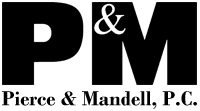Call Us Today!
(617) 720-2444
Expert and Cost-Effective
Legal Advice & Services
 By: Rebecca J. Merrill, Esq.
By: Rebecca J. Merrill, Esq.Time is Running Out: March 23rd is the Deadline for Nursing Facilities to Implement Mandatory Compliance & Ethics Programs
On or before March 23, 2013, Medicare and/or Medicaid certified nursing facilities must have in operation a Compliance & Ethics Program that is effective in promoting quality of care and preventing and detecting criminal, civil and administrative violations under the Patient Protection and Affordable Care Act of 2010 (Pub. L. 111-148) (the “ACA”). While the ACA clearly required the Secretary and Inspector General of the Department of Health and Human Services to issue regulations further defining the ACA Mandatory Compliance & Ethics program requirements by March, 23, 2012, no such regulations have been promulgated. The lack of clarifying regulations, however, does not relieve nursing facilities of the statutory obligation to have in operation such a Compliance & Ethics Program. Fortunately, the Office of Inspector General has long been committed to guiding nursing facility providers in the development of voluntary compliance plans and such guidance is an excellent starting point for developing or reviewing and updating existing compliance programs and documents. See OIG Supplemental Compliance Program Guidance for Nursing Facilities, Sept. 2008; and OIG Original Compliance Program Guidance for Nursing Facilities, Mar. 2000.
Section 6201 of the ACA also sets forth several critical elements that must be addressed in nursing facility compliance and ethics programs to meet the ACA mandate. These elements include:
A. Established compliance standards and procedures to be followed by employees and other agents that are reasonably capable of reducing the prospect of criminal, civil, and administrative violations.
B. Assign overall responsibility for compliance oversight to specific individuals within high-level personnel of the organization to ensure adherence to compliance and ethics standards and procedures and provide such individuals with sufficient resources and authority to accomplish such compliance.
C. Use due care not to delegate substantial discretionary authority to individuals whom the organization knows, or should know, through the exercise of due diligence, had a propensity to engage in criminal, civil, and administrative violations.
D. Take steps to effectively communicate its compliance and ethics standards and procedures to all employees and organizational agents (e.g., require participation in training program; disseminate training materials that explain requirements in a practical manner).
E. Take reasonable steps to achieve compliance with its standards (e.g., utilize monitoring and auditing systems designed to detect criminal, civil, and administrative violations under the ACA by its employee and agents; employ and publicize a reporting system that enables employees and agents to report violations without fear of retribution).
F. Consistently enforce standards and procedures through appropriate disciplinary mechanisms, including, as appropriate, discipline of individuals responsible for the failure to detect an offense.
G. After an offense has been detected, take all reasonable steps to respond appropriately to the offense and prevent further offenses of a like nature (e.g., make necessary modifications to existing compliance and ethics program to better prevent and detect criminal, civil, and administrative violations).
H. Perform periodic reassessment of the existing compliance and ethics program to identify changes necessitated by organizational evolution and changes in public policy.
All nursing facilities should undertake a comprehensive review of existing compliance and ethics policies, if any, and update or draft new policies to ensure that the facility meets the statutory requirements for the March 23, 2013, Mandatory Compliance & Ethics Programs for CMS Certified Nursing Facilities. The Health Care Team at Pierce & Mandell, P.C. is equipped and prepared to assist your facility in developing or updating its compliance and ethics standards and procedures.